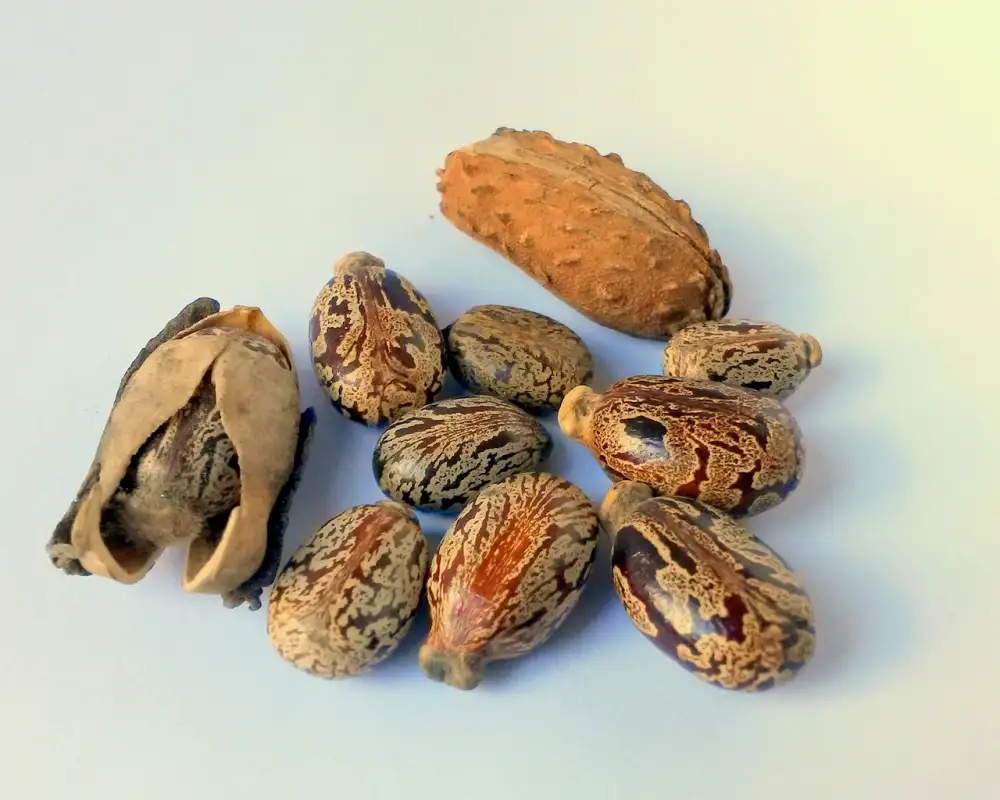Unlocking the Health Benefits of Seed Oils: Exploring the Power of Nature's Nutrient-Rich Elixirs

- Nutritional Profile of Seed Oils
- Omega Fatty Acids in Seed Oils and their Importance for Health
- Antioxidant Properties of Seed Oils and their Impact on Well-being
- Potential Role of Seed Oils in Reducing Inflammation and Promoting Heart Health
- Seed Oils and their Effect on Cholesterol Levels
- Seed Oils and their Impact on Blood Sugar Regulation
- Seed Oils and their Contribution to Brain Health and Cognitive Function
- Incorporating Seed Oils into a Healthy Diet
Seed oils are nature's nutrient-rich elixirs that offer a wide range of health benefits. Extracted from various seeds such as flaxseed, chia seed, hemp seed, and pumpkin seed, these oils are packed with essential vitamins, minerals, and antioxidants. They have been used for centuries in traditional medicine for their healing properties. Today, scientific research has confirmed their potential to promote optimal health and well-being. In this article, we will explore the numerous health benefits of seed oils and how they can be incorporated into a healthy diet for maximum impact.
Nutritional Profile of Seed Oils
Seed oils are not only delicious additions to our meals, but they also offer a wide range of health benefits. These oils are derived from various seeds such as flaxseeds, chia seeds, sunflower seeds, and sesame seeds. Each seed oil has its own unique nutritional profile, packed with essential vitamins, minerals, and healthy fats.
One of the key components of seed oils is their high content of monounsaturated and polyunsaturated fats. These healthy fats are known to promote heart health by reducing bad cholesterol levels and increasing good cholesterol levels in the body. Additionally, these fats provide a concentrated source of energy and aid in the absorption of fat-soluble vitamins.
Seed oils are also rich in vitamin E, an antioxidant that helps protect our cells from damage caused by free radicals. Vitamin E plays a crucial role in maintaining healthy skin, boosting the immune system, and protecting against chronic diseases such as cancer and heart disease.
Furthermore, seed oils contain an array of essential nutrients including omega-3 and omega-6 fatty acids. Omega-3 fatty acids have anti-inflammatory properties and contribute to brain health and cognitive function. On the other hand, omega-6 fatty acids play a vital role in promoting proper growth and development, regulating metabolism, and supporting overall well-being.
Incorporating seed oils into our diet can be a simple yet effective way to enhance our nutritional intake. Whether drizzled over salads or used for cooking purposes, these nutrient-rich elixirs offer a flavorful alternative to traditional cooking oils while providing numerous health benefits.
By harnessing the power of nature's nutrient-rich seed oils, we can unlock their potential to support optimal health. So why not explore the world of seed oils today and discover how these culinary creations can nourish both your body and soul?
Omega Fatty Acids in Seed Oils and their Importance for Health
Omega fatty acids are essential nutrients found in seed oils that play a crucial role in maintaining overall health. These fatty acids, including omega-3, omega-6, and omega-9, are known for their numerous health benefits. Omega-3 fatty acids have been shown to reduce inflammation, support heart health, and improve brain function. Omega-6 fatty acids are important for proper growth and development, as well as maintaining healthy skin and hair. Omega-9 fatty acids help lower bad cholesterol levels and promote a healthy cardiovascular system. Including seed oils rich in omega fatty acids in our diet can provide us with these essential nutrients and contribute to our overall well-being.
Antioxidant Properties of Seed Oils and their Impact on Well-being
Seed oils are not only rich in essential fatty acids but also possess powerful antioxidant properties that can have a significant impact on overall well-being. Antioxidants help protect the body against oxidative stress, which is caused by an imbalance between free radicals and antioxidants in the body. This imbalance can lead to cell damage and contribute to the development of chronic diseases such as cancer, heart disease, and diabetes. The antioxidants found in seed oils, such as vitamin E and phenolic compounds, help neutralize free radicals and reduce oxidative stress. By incorporating seed oils into our diet, we can harness their antioxidant power and promote better health.
Potential Role of Seed Oils in Reducing Inflammation and Promoting Heart Health
Seed oils have shown promising potential in reducing inflammation and promoting heart health. Many seed oils, such as flaxseed oil, hempseed oil, and chia seed oil, are rich in omega-3 fatty acids. These essential fats have been found to have anti-inflammatory properties, helping to reduce inflammation in the body.
Chronic inflammation is a key driver of many chronic diseases, including heart disease. By incorporating seed oils into your diet, you can help combat inflammation and support a healthy cardiovascular system.
In addition to their anti-inflammatory effects, seed oils also contain other compounds that benefit heart health. For example, sesame seed oil is high in sesamin and sesamol, two antioxidants that have been shown to reduce cholesterol levels and improve blood pressure.
Sunflower seed oil is another excellent choice for heart health due to its high content of vitamin E. This powerful antioxidant helps protect against oxidative stress and may reduce the risk of heart disease.
To harness the potential benefits of seed oils for reducing inflammation and promoting heart health, it is important to choose high-quality cold-pressed oils and incorporate them into a balanced diet. Drizzling them over salads or using them in marinades are great ways to enjoy their nutritional benefits while adding flavor to your meals.
However, it's worth noting that while seed oils can be beneficial when consumed in moderation as part of a healthy diet, they should not be used as a replacement for other essential nutrients or medical treatments prescribed by healthcare professionals. As with any dietary change or supplement use, it's always best to consult with a healthcare provider before making significant changes to your routine.
Seed Oils and their Effect on Cholesterol Levels
Seed oils have been found to have a positive effect on cholesterol levels. Several studies have shown that consuming seed oils, such as flaxseed oil and chia seed oil, can help lower LDL cholesterol, also known as "bad" cholesterol. These oils are rich in omega-3 fatty acids, which have been shown to reduce the levels of LDL cholesterol in the blood. Additionally, seed oils contain phytosterols, plant compounds that can inhibit the absorption of cholesterol in the intestines. By incorporating seed oils into your diet, you can potentially improve your cholesterol profile and reduce your risk of heart disease.
Seed Oils and their Impact on Blood Sugar Regulation
Seed oils have been found to have a positive impact on blood sugar regulation, making them beneficial for individuals with diabetes or those at risk of developing the condition. The high levels of monounsaturated and polyunsaturated fats in seed oils help to improve insulin sensitivity, allowing cells to better absorb glucose from the bloodstream. This can help to prevent spikes in blood sugar levels and promote stable glycemic control. Additionally, seed oils contain compounds that have been shown to enhance pancreatic function and increase the production of insulin, further aiding in blood sugar regulation. By incorporating seed oils into a balanced diet, individuals can support their overall health and effectively manage their blood sugar levels.
Seed Oils and their Contribution to Brain Health and Cognitive Function
Seed oils have been found to play a crucial role in promoting brain health and cognitive function. These oils are rich in essential fatty acids, such as omega-3 and omega-6, which are vital for the development and maintenance of the brain. Omega-3 fatty acids, in particular, have been shown to improve memory and cognitive performance.
Research suggests that seed oils can help reduce the risk of age-related cognitive decline and neurodegenerative diseases like Alzheimer's. The omega-3 fatty acids found in seed oils have anti-inflammatory properties that protect brain cells from damage and promote healthy brain function.
In addition to their omega fatty acid content, seed oils also contain antioxidants that combat oxidative stress in the brain. Oxidative stress is known to contribute to cognitive decline and neurodegenerative disorders. By reducing oxidative stress, seed oils help maintain optimal brain health.
To reap the benefits of seed oils for brain health, it is important to choose high-quality, cold-pressed varieties. These oils retain more nutrients compared to refined versions. Incorporating seed oils into your diet by using them in cooking or as a dressing for salads can provide a natural boost for your brain health.
In conclusion, incorporating seed oils into your diet can contribute significantly to maintaining optimal brain health and cognitive function. The essential fatty acids and antioxidants present in these oils provide protection against age-related cognitive decline and support overall brain function. So why not unlock the power of these nutrient-rich elixirs and give your brain the nourishment it deserves?
Incorporating Seed Oils into a Healthy Diet
Including seed oils in your daily diet is a simple and effective way to reap their numerous health benefits. Here are some tips on how to incorporate these nutrient-rich elixirs into your meals:
1. Salad Dressings: Use seed oils such as flaxseed, hempseed, or pumpkin seed oil as a base for homemade salad dressings. Their nutty flavors will add depth to your greens while providing essential nutrients.
2. Cooking and Baking: Substitute traditional cooking oils with healthier alternatives like sunflower or sesame seed oil when sautéing vegetables or frying foods. These oils can withstand high heat without losing their nutritional value.
3. Smoothies and Shakes: Boost the nutritional content of your smoothies by adding a tablespoon of chia seed oil or black cumin seed oil. Not only will it enhance the flavor, but it will also provide an extra dose of omega fatty acids.
4. Drizzling: Finish off roasted vegetables, grilled meats, or even soups with a drizzle of cold-pressed seed oil like walnut or avocado oil. This will not only enhance the taste but also add a touch of richness to your dishes.
Remember to store seed oils in a cool, dark place to preserve their freshness and maximize their health benefits. By incorporating these versatile elixirs into your daily meals, you can unlock the power of nature's nutrient-rich goodness for optimal health and well-being.
In conclusion, seed oils are a treasure trove of health benefits that can greatly contribute to our overall well-being. From their rich nutritional profile and abundance of omega fatty acids to their antioxidant properties and potential role in reducing inflammation, seed oils offer a natural elixir for optimal health. Moreover, they have been shown to impact cholesterol levels, blood sugar regulation, and even brain health and cognitive function. By incorporating seed oils into our daily diet, we can unlock the power of nature's nutrient-rich elixirs and experience the countless benefits they have to offer. So why not embrace these culinary creations and embark on a journey towards a healthier lifestyle?
Published: 10. 12. 2023
Category: Health



